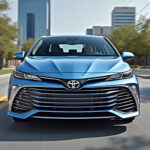Energy News Beat
[[{“value”:”
Europe could ally with the United States to combat Chinese “overcapacities” as an alternative to conflict over US President Donald Trump’s threatened duties on steel and aluminium, the bloc’s trade chief said on Thursday.
Speaking to journalists the day after a high-stakes meeting with senior US officials, Maroš Šefčovič said that Brussels and Washington should “work together” to tackle the “non-market practices” that are rendering the EU and US metal industries increasingly uncompetitive.
“My plea here was: let’s not target each other’s steel and aluminium sectors,” Šefčovič said.
In a thinly veiled reference to Beijing’s industrial policies, he noted: “Let’s try to work together and to tackle what is the real problem – and this is the global overcapacity.”
The long-serving commissioner also said that he hoped the “momentum” generated by the “good meeting” could be used to reach a negotiated solution.
China produced 55.1% of the world’s crude steel in 2023, according to the European Steel Association (Eurofer), while the EU produced 6.8% and the US 4.4%. China also produced just under 60% of the world’s aluminium in 2022, according to the International Aluminium Institute.
Last week, Trump announced a blanket 25% tariff on steel and aluminium that is set to enter into force on 12 March. He also pledged to introduce “reciprocal tariffs” aimed at matching the import levies of other countries, which could come into effect by 2 April.
Eurofer has warned that Trump’s steel duties “risks causing new, significant trade flow deviations” that could lead to steel now imported into the US being “massively diverted into the European market”.
“Today global steel overcapacity is being off-loaded massively on the vulnerable EU steel market at very cheap prices,” Eurofer said after Trump’s tariff announcement last week.
Šefčovič’s remarks come amid broader efforts by EU officials to forge common ground with Washington vis-à-vis Beijing.
Commission President Ursula von der Leyen said after a meeting with US Vice-President JD Vance last week that the EU and the US face “shared challenges as allies”, including “the critical challenge of non-market overcapacity”.
Beijing has pushed back against such allegations, arguing that they are “completely untenable” and go “against both the objective facts and rules of market economy”.
“For decades, China has been a force of disinflation for the world through its supply of manufactured products with good value for money,” Beijing’s Finance Vice-Minister Liao Min said last year.
Car duties a ‘priority’
Reiterating remarks delivered over the past week, Šefčovič also noted on Thursday that Brussels is ready to lower import levies on “all industrial products” – and hinted that Brussels is most amenable to reducing its levy on cars.
The EU’s current car tariff rate is 10%, four times higher than the US rate. The US purchased €56 billion worth of EU cars and auto components in 2023 – making the US the top export destination for the bloc’s automobile sector.
The European Commission also imposed duties of up to 35.3% on Chinese electric vehicles last year to protect its struggling auto sector from the impact of Beijing’s state subsidies.
“I would say that the priority which was highlighted several times in our conversation was to work on cars, how to lower the tariffs, eventually even eliminate them,” Šefčovič said.
Exacerbating the EU auto sector’s concerns, Trump said on Tuesday that a new tariff on US car imports will “probably” be announced on 2 April and “will be in the neighbourhood of 25%”.
Trump also falsely suggested that the EU had already reduced its 10% car levy to 2.5%.
“}]]
The post EU seeks alliance with US against Chinese ‘overcapacities’ to avoid Trump tariffs appeared first on Energy News Beat.









